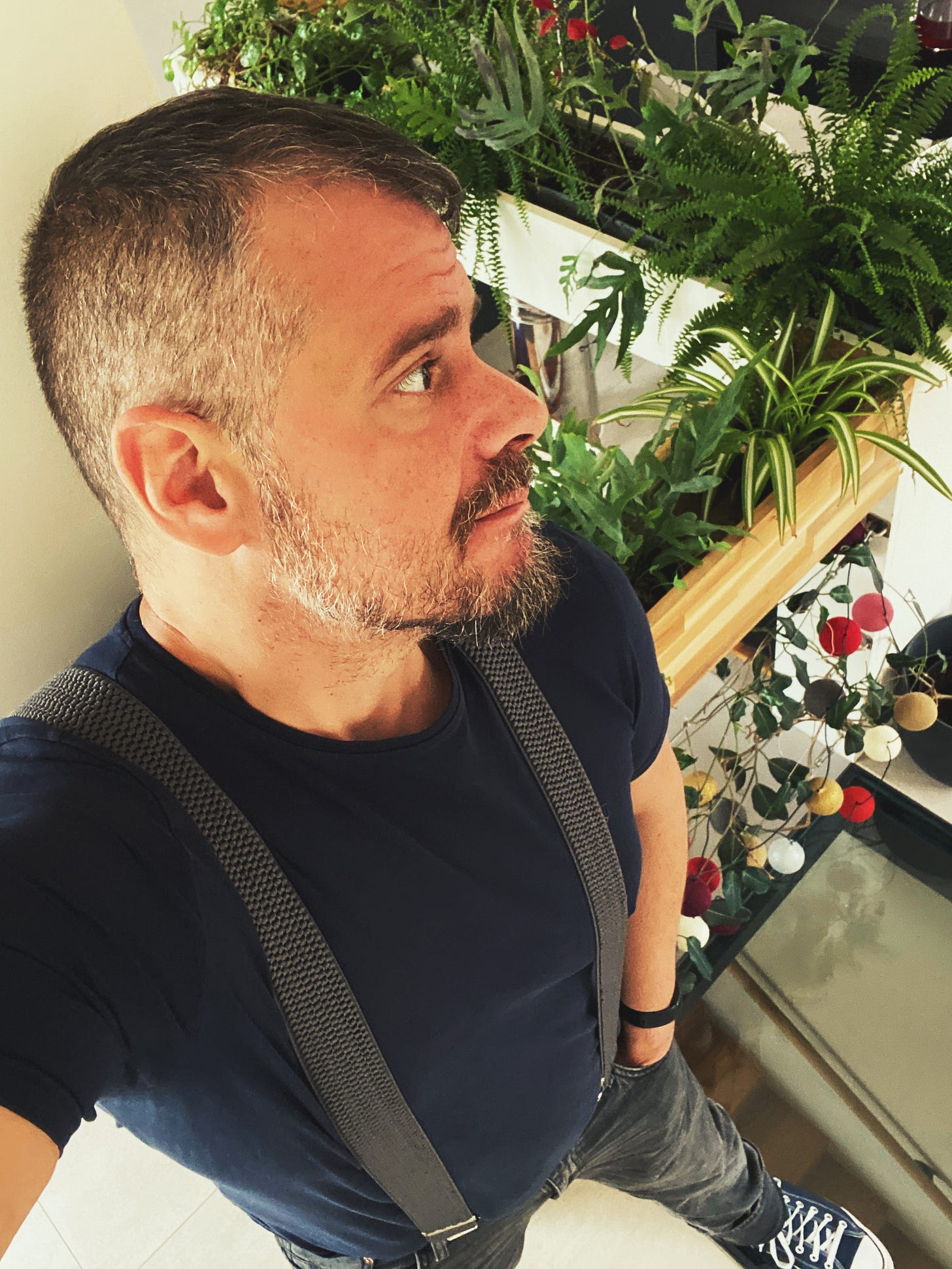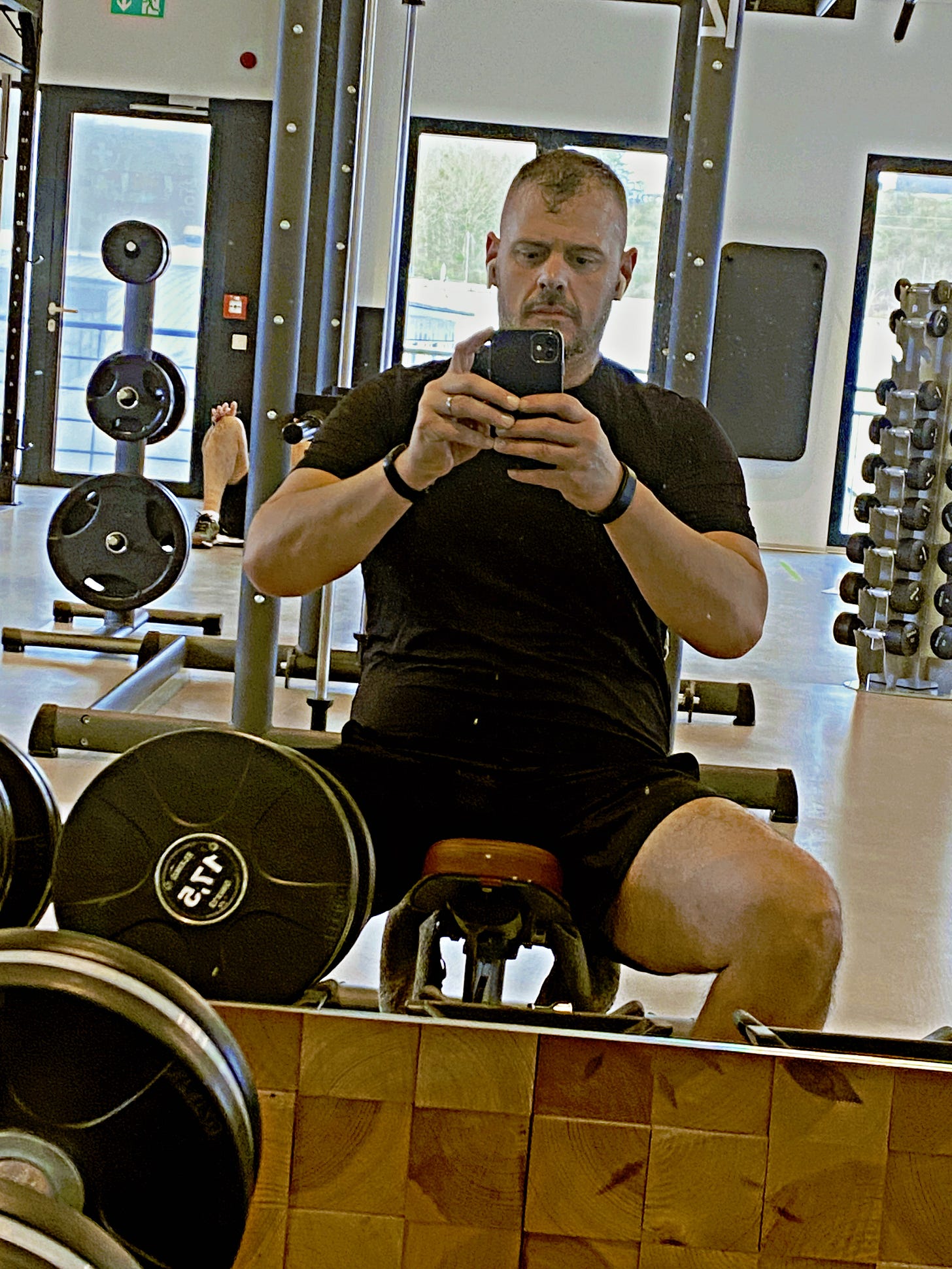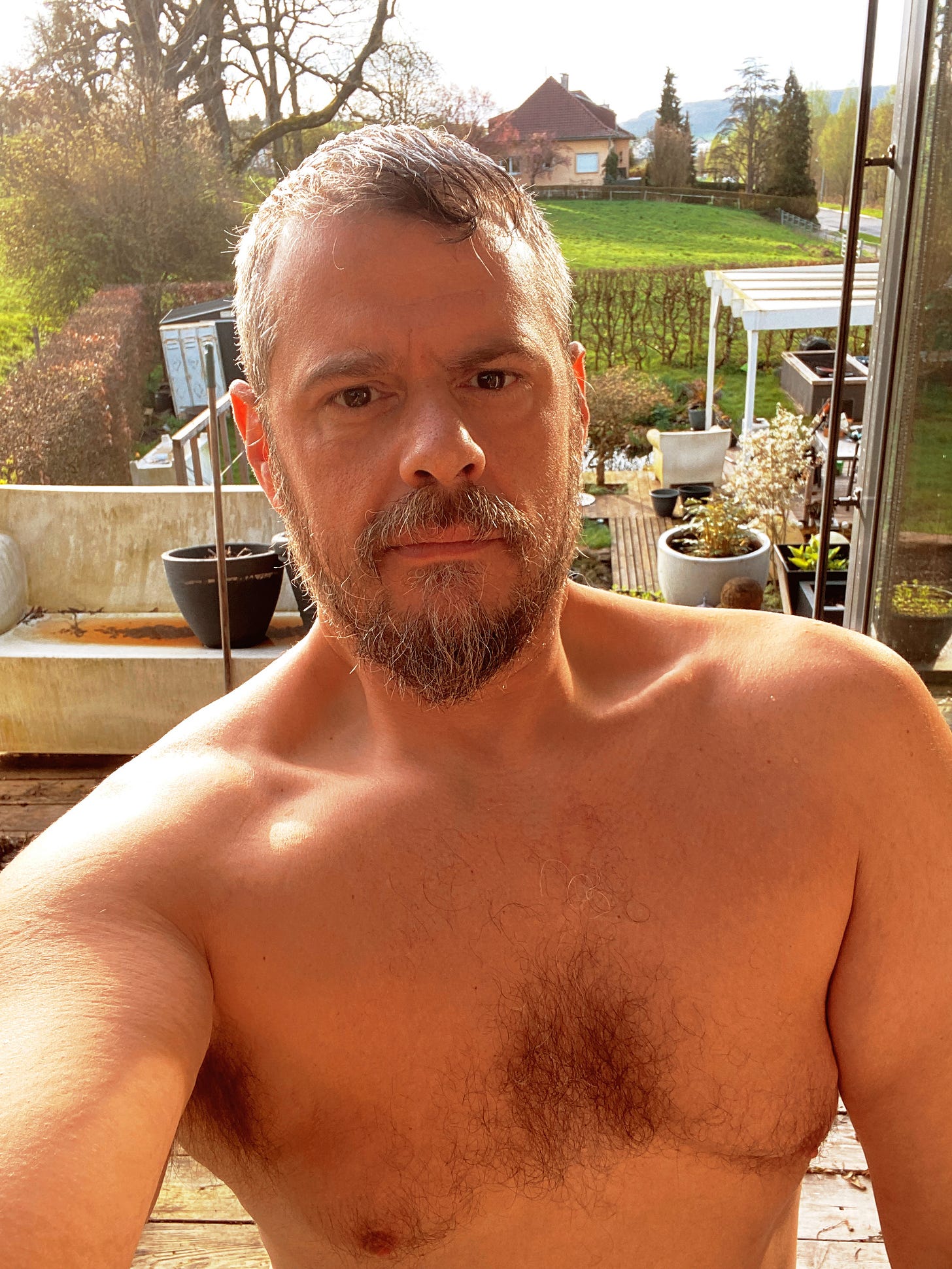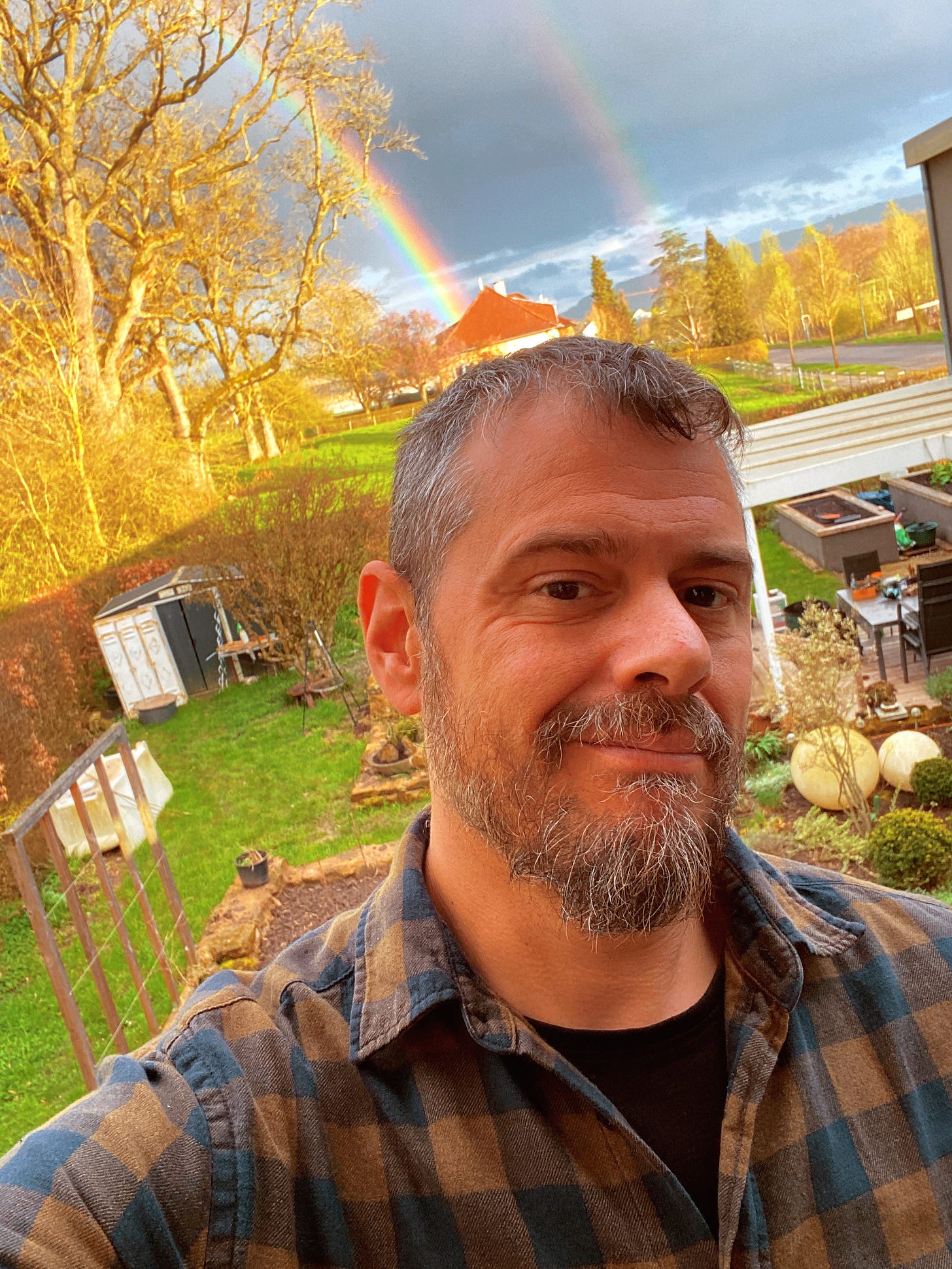Shaping
Magic transforms the world, but only once it has first transformed the self.
Every few months or so, and especially after I receive a sudden surge of new subscribers, I write a re-introduction. Though I’ve had readers tell me they really appreciate these, I’ve noticed these re-introductions are just as helpful — if not even more — for me.
Each time, I write something different about myself, and find I’m not really the person I was when I wrote the previous one. And often, in the act of writing to, well, strangers, something surprising is reflected back that I’d not noticed before.
If you’re also a writer, or a visual or similar artist, you’re familiar with the really perplexing aspect of “performance” that comes along with this kind of art. I am creating blind, unable to see what others see in what I’ve shaped.
I write essays which often take me a couple of days to compose. Add in the time threads of an idea are spun from raw experience in the mind before the actual writing, and it takes much longer than that. Then, after writing the essay, I hit ‘publish,’ often very quickly. Perhaps too quickly, since I often then have to go back and edit out errors in pieces already sent to thousands of readers.
I assure you, though, this is better than the alternative, which is leaving an essay in draft form for weeks and months. That happens when I don’t feel it’s finished, or I feel it cannot ever be finished, and sometimes just because I’m a coward.
Writing is such a vulnerable thing to do. I tell you about something, or about how I see a certain thing. But by doing so, I also tell you how my mind works, how I form thoughts, how my brain connects concepts and historical moments and emotions. To the attentive reader, a lot more about me is laid out naked before them, open to be examined, prodded, dissected, critiqued, and judged.
It’s a lot like being naked, I guess, or more-naked-than-naked, because you get to see past my skin into places my own vision cannot reach.
I’m including quite a few recent photos of myself in this re-introduction. I reckon that, if you’re going to be peering inside my thoughts, I might as well give you an idea of what the rest of me looks like, too.
I’m currently in the midst of what a longtime friend of mine calls a shapeshift. “Shapeshifter,” he often says to me, with all the ambiguity that comes along with the term.
Medieval Europeans, especially during the witch and werewolf panics of the 16th and 17th centuries, regarded shapeshifting as a power possible only through demonic contract. Witches could transform into animals, often taking on the forms of their purported familiars. The men (and occasional woman) accused as werewolves became, well, wolves, but were often assumed to have little say in when and how the shift occurred. And, of course, the devil himself came often in the form of a goat, an ass, or some hybrid form human enough to stand upright but too animal to be fully man.
Europe was already full of shapeshifters before these panics arose, and so was the rest of the world. Shapeshifting is one of the more common mystical practices seen in animistic —and especially shamanic — cultures. It’s also a primary communicative method in prophetic dreaming, in which a spirit takes on a familiar form in order to be heard best by the dreamer.
Even the Old Testament is full of such occurrences, angels taking on simpler forms so as not to terrify the faithful, the Judaic mono-god hiding his face or appearing as a fire in some shrubbery.
Often in animistic cultures, the person who shapeshifts does so to learn something from the adopted form. Becoming a bird, a mammal, a tree, a stream, a breath of wind, the tip of a wave gives the shifter glimpses of the wisdom such beings gather and gift.
Becoming someone else also teaches what you are, what you are not, and what you can also be.
Who — or better asked, what — is it into which I’m shifting?
I don’t know much more than you do, though I get glimpses occasionally. My mind’s different, a change I notice particularly when I find myself not thinking.
Once a rare state of being, not-thinking has lately become my resting state, my setl. I’m now more often not-thinking than I am thinking, and it feels incredible.
Certainly, the gym’s doing much of this. Since December, I started training four times a week. Call it training “religiously,” and you get a quite accurate description, especially since going to my gym feels a lot like what going to church when I was Christian felt like. Well, minus the boring parts, and the panicked fear of the faggots, and all singing of shitty songs and orchestrated emotions. Also, there’s a lot more sweat, and a lot more smiling, and a hell of a lot more grunting at the gym then there ever was at church.
I’m doing six hours a week of ritual body work at the gym, now, and I plan the rest of my activities around it. Getting enough sleep is for those rituals, eating breakfast every morning (whey, kefir, berries) is for them, too. Daily drinking five liters of water, stretching, tracking macros and calories, and planning everything I eat: all for those rituals.
To call all this “ritual” and “religious” is not to speak in metaphor, but in truth. Peruse any occult text worth more than the paper it’s printed on and it’s all the same. Magic transforms the world, but only once it has first transformed the self. The alchemical and occult texts are replete with training regimens as brutal as anything a gym coach might design, including what to put into your body (food, herbs, minerals) and when. Abstaining from alcohol, distraction, and ejaculation are hardly all quirky fads of modern “no fap” groups, nor of purity-obsessed Christians, but rather recurrent prescriptions in ritual magic.
What’s ridiculed by hyper-secularists as dangerous “conspirituality” or touted by techno-utopians as “progress” or “advancement” is, on the contrary, the kind of magic that has been with humans for as long as we can possibly guess. And like all magic, some of it works, some of it doesn’t, and all of it requires a state of mind increasingly foreign to our world drained of meaning.
Of course this kind of magic tires you out, exhausts you, makes you want to rest and just be. I can barely form sentences after my trainings, am so wet in sweat that everything I touch gets soaked, and the only thoughts that come to mind are the animal ones.
I want food. I want sunlight, and I want sex, and I want sleep.
And I want to do this all again, and again, and again.
But perhaps I am not actually shapeshifting, but really just shaping. Shape is a word whose earliest meanings meant “create, ordain, destine.” To shape was to bring forth from what already was, to coax out its possibility.
Like most words, the noun came later. A shape was a thing created, an external form brought forth, and also their genitals. The shape of a person was their manifestation, how they created themselves in the world.
To be out of shape, then, was to be not fully manifested, to not be in one’s proper — self-same, self-owned — form. Thus, it’s strange we then began to speak of “shape” as something you “get into,” as if a shape were something passive to be put on like clothing, worn and taken off and put back on again.
But I’m increasingly learning that you don’t get into shape. You shape, become, create, and destine yourself.
It’s such a tragic thing that such workings are seen as an insult to those who fear the power of shaping and have forgotten their own. I once felt this way, railing against “unhealthy beauty standards” or “capitalist fitness culture,” making fun of gym bros and yoga moms and pretending I had some authentic critique informing my ressentiment.
I didn’t, nor do any of those crying “ableism” at such things. You either shape or you don’t, just like you either do magic and ritual or you don’t. Magic is hard. Shaping is hard. It’s all work, and it’s really rather brutal. Not everyone would even want to do this, and that’s just how it is.
What’s it all actually doing, though? And why tell you all this?
I’ve started to see the rituals have begun to work. Hardly the most muscular nor the most fit in the places I went this weekend, I regardless noticed how my presence and gravity have changed. At a club with a friend, I smiled as people seemed to both make way for and orbit me. On public transit, a charming ex-convict recounted his recent life to me like I was an old friend. A Slavic bodybuilder at a cafe acted like we were estranged brothers.
For the pagan Greeks, charisma wasn’t something you possessed, but rather instead a subtle presence that was something else besides you. A god or a particularly strong spirit had noticed you, and others noticed that you’d been noticed. There was something Other about the charismatic, the fearsome touch of strong magic. Something similar persisted also into Christianity, the presence of “the holy spirit” being a subtle power early initiates into the Christ-mysteries seemed to wield.
Therein is one of the purposes of all these ritual workings: the perception of spirits. It’s this I’ve begun to notice most as my muscles grow and my thoughts settle, all the “intermediary spirits” constantly shaping the world. They’re everywhere active, and eager to talk.
I wrote about those spirits late last year, in one of the installments of my series, The Mysteria, which I’m now unlocking for everyone:
To not put too fine a point on it, this is the root of disenchantment: an entire category of beings, which fifteen centuries’ worth of European Christians (and many more centuries of pagans before them) had believed existed, was suddenly written out of the world.
Perhaps it sounds strange to connect ritual body workings with spirits. It sounded strange to me at first, and thus surprised me when the magic began to manifest. But it’s only strange because we think of ourselves as shaping alone, as if mere force of will were enough to change the world or even the self.
Shaping is an agreement and a collaboration. The sculptor doesn’t shape from stone, but with stone, just as the musician doesn’t make music from an instrument, but rather with it. The difference here is not merely linguistic, but rather a profound shift in how we approach agency, the world, and all within it .
So I don’t shape alone, nor could I, and as I shape I become more and more aware of the spirits with whom I shape. And this, just as much as the shaping, it what is changing me.
That’s why I write all this as a re-introduction. The person I was when I started this substack had none of this knowledge nor perception. The person I am now knows more, but is only just beginning to understand.
I’m so grateful for you, dear readers, as you’ve also been part of this shaping, and will no doubt continue to be.










Coming along nicely, my friend.
Interesting piece, thanks! And great shape :).
While I've got your attention, Rhyd, I was wondering if you could have a conversation with Paul Cudenec at some point? From the purely selfish reason of me wanting to understand your different perspectives on Marxism and anarchism so I can have more clarity on the subject myself. Thank you!